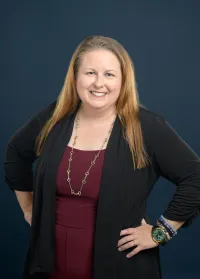
A Seat at the Rainbow Table
Infertility has recently been redefined by the American Society for Reproductive Medicine (ASRM) to be more inclusive to the LGBTQ+ community.
There will be some who downplay the need for inclusivity in all shapes and forms, but they are the ones who no longer will be allowed to “sit with us” in the high school cafeteria. The “table” is getting bigger for more and more people to join in on the healthcare benefits. Infertility treatments should be no different. While we can celebrate the new definition, it may take time for a cultural change to manifest itself in terms of insurance coverage. Even in these semi-enlightened times, be aware that not every insurance plan will cover donors, gestational carriers or even the intrauterine insemination (IUI) or in-vitro fertilization (IVF) process for same-sex couples or singles.

One thing I can share from my years as a fertility nurse is that a majority of our patients had little-to-no knowledge on how the reproductive process works. That needs to change, and that, my friends, is another blog post. Heterosexual couples (usually) know that intercourse leads to pregnancy. Believe me when I say “usually” — there are those who have been kept in the dark and have zero idea how to make a baby. But what about our friends in the LGBTQ+ community? Now that y’all is “all,” we need to ensure that we are not leaving people outside and get them at the table.
Information can be shared in online forums such as message boards and group text chats. The question is, Can we be sure that correct information is being shared? I had patients who said before they walked in my clinic, they just used Instagram and TikTok for information on having a baby. There are healthcare professionals out there doing Instagram and TikTok videos, but I am not sure these were the videos being referred to. The main point is: Go-to reliable sources for your reproductive questions need to be easier to find.
For lesbian or gay couples, there are many factors to consider when looking for a sperm or egg donor. It is not just looking at the donor’s pictures; there is a whole profile that is behind that photo. Do I want a donor to look like Tom Hiddleston or Scarlett Johansson? Yes! That would make one marvelous baby. But seriously, checking the legitimacy of the donor agency is critical. How much testing is done? Is there a psychological consultation with a licensed professional in the donor’s profile? Remember that a donor’s profile is self-reported; no one is doing an extensive background check on family history or education.
Anyone who needs to utilize a gestational carrier can plan on having much more to decide. This person will be carrying and delivering your baby. The decision will lie with you, but know that you have sources to turn to including your agency and Reproductive Endocrinologist and Infertility specialist (REI). If you do not have a known gestational carrier, it would be recommended to use an agency to find one. People turn to Facebook (akin to craigslist), which I would say to avoid at all costs.

Going back to the dollar signs … donors and gestational carriers cost money even if they come from your friends & family inner circle. It’s difficult to sit through a consult with someone (single or couple) and give them the idea of costs and see their face(s) change from hope to dismay. This is why redefining infertility is so important. Coverage needs to catch up.
Regardless of the reason, if you want to build a family, you should have a seat at the table.
Ann Marie Luft has been a Fertility Nurse for more than 10 years, with experience in every aspect of the field. Learn more about how she can help guide you through your reproductive journey.

